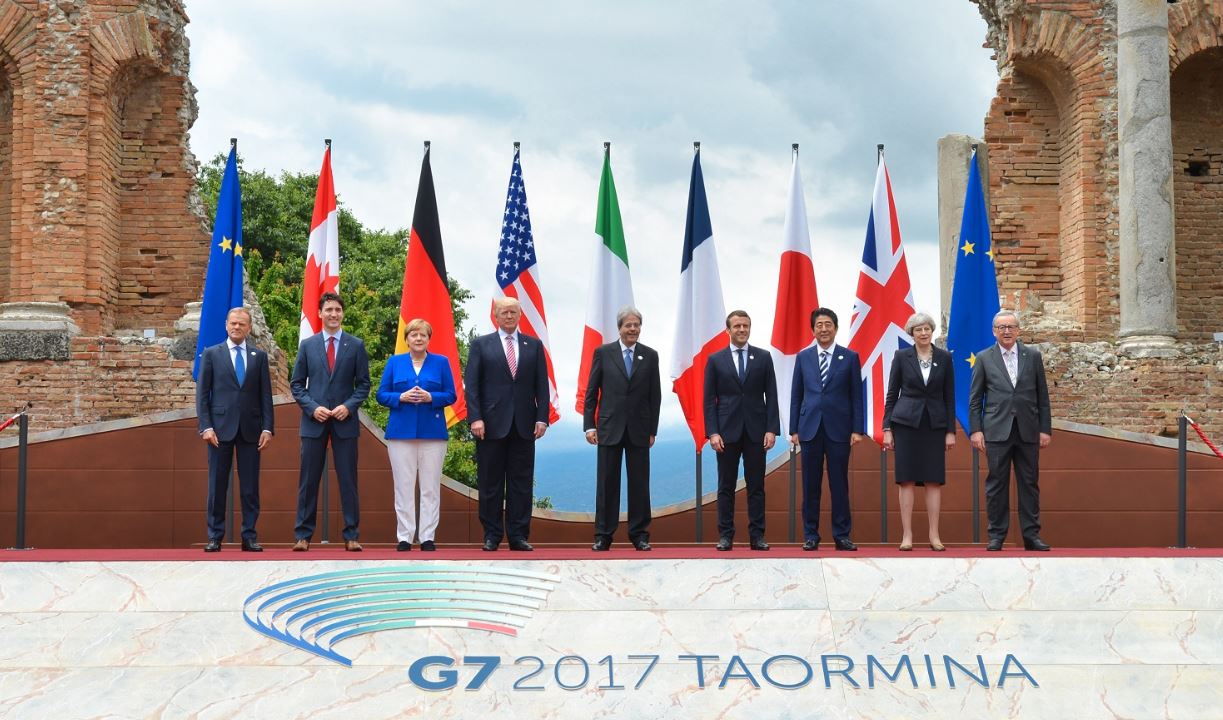Balance
Many governments are closed within a restricted understanding of their self-interests, unable to develop far-reaching projects for the common good and to reach an agreement on delivering negotiated solutions. There is an urgent need for different political grounds to exit the deadlock and the fragmentations

The G7 summit in Taormina ended with various tensions, few concrete outcomes and an inevitable veil of rhetoric marking official statements. Those are the elements that contributed to an overall poor result, which was widely expected. Thus it would be wrong to describe it as a veritable disappointment, nor would it be right to accuse the Italian government of having done a poor job. Indeed, our present Government, owing to its composition and owing to uncertainties regarding its permanence in office until the coming fall, was not among those capable of guiding the summit towards a well-defined goal. However, if even that had been the case, little more would have been achieved.
President Trump’s antagonistic attitude characterised every aspect of the meeting in Taormina, both in content and form. Trump is intolerant of every form of ritual, negotiation and debate that denies him the possibility to rapidly impose his opinion and will. It was evident in the protocol meetings, where he displayed scarce interest towards what was being said; in his coldness towards Chancellor Angela Merkel and in the decision to cancel the press conference scheduled for the end of the summit. As for the most important aspect, that is, the content of the meeting, the divide separating present US administration from the rest of the participants emerged in the debates on global climate change and energy policies. In fact, the final statement makes it clear that the United States are reconsidering their position on the Paris Agreement and thus cannot adhere to the unitary position expressed by the Governments of the six other Countries. Tensions equally marked international trade talks, where Trump’s protectionist drives were partly supported by Theresa May.
However, even when Trump’s iconoclasm or his opposition to other speakers’ views did not weigh in directly, the summit failed to send strong messages. Although the Group of 7 acknowledged the fact that growing inequalities are a serious problem of contemporary societies, their statement went slightly further than a mere recognition of the facts. As regards the migratory phenomenon, they reiterated the rights of refugees and migrants along with the right of the States to protect their national borders and develop policies aimed at pursuing national interests. They conveyed the hope that the refugees may be helped in areas as close as possible to those they flee from, but failed to deliver concrete proposals – exception made for undefined partnerships with the Countries of departure.
The same can be said with regard to themes concerning international security, despite a few resolute stances. For example, the G7 leaders agreed that Russia is the main culprit of the situation in Ukraine; they declared that Crimea’s annexation is illegitimate and that they expect reinforced cooperation from Putin in order to solve the ongoing conflict. Trump, besieged in his homeland over alleged questionable relations with the Russian government, was not in the position of opposing himself. In fact he continued following the line of detachment from Putin, with an aim to address national problems. G7 leaders equally conveyed their availability to involve Russia in the search for a solution to the Syrian crisis, against the backdrop of Iran’s involvement. Teheran’s regime was solely mentioned with regard to the possibility of using its influence to end the hostilities. In this case Washington’s new line of action must have weighed in.
Our government outlined the importance of the statement on the fight against terrorism, but unfortunately, the progress made so far is far from brilliant. In their declaration G7 Countries pledge to cooperate concretely in the fight against terrorism and to counter the phenomenon of foreign fighters through joint intelligent measures and constant exchange of information, but this is only what is needed in the present situation, not to mention the fact that the struggle ongoing within the US government is sparking off tensions with the secret services of some allied Countries.
In short, Taormina lacked the grounds to deliver consistent results. Many governments were withdrawn within a restricted understanding of their self-interests, unable to develop far-reaching projects for the common good and to reach an agreement on delivering negotiated solutions. There is an urgent need for different political grounds to exit the deadlock and the fragmentations.